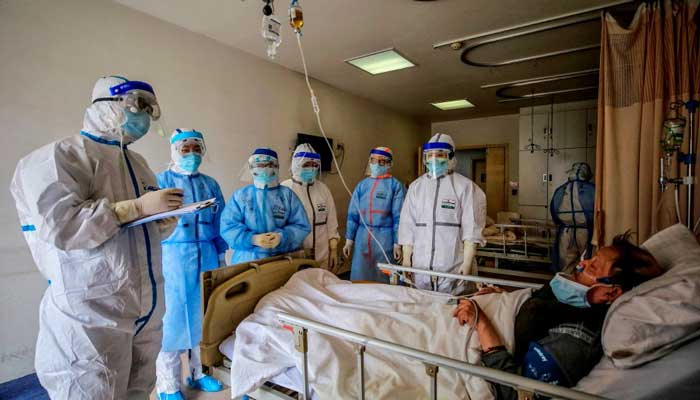Pakistan is among those countries that are least prepared to tackle the coronavirus challenge, according to a report by the United Nations Development Program (UNDP) based on virus-related data from around the world, The News reported on Tuesday.
Keeping in view the level of human development, healthcare system capacity and internet access, Pakistan is one of those countries that are vulnerable to COVID-19 due to lack of preparedness.
For every 10,000 people, Pakistan has only 9.8 physicians, five nurses and only six hospital beds. The country spends 2.8% of its GDP on health. The level of preparedness shows how vulnerable Pakistan is to the virus.
‘Digital divide has become more significant’
More developed countries have on average 55 hospital beds, over 30 physicians, and 81 nurses per 10,000 people. The least developed nations on average have seven hospital beds, 2.5 physicians, and six nurses.
The report highlights the issues being faced by the people during lockdowns as well. The digital divide according to this report has become more significant than ever.
Almost 6.5 billion people around the globe — 85.5% of the global population still don’t have access to reliable broadband internet, which limits people’s ability to work and continue their education.
‘Some groups more vulnerable to pandemic’
According to data, India has 7.8 physicians for every 10,000 people whereas, it has 21 nurses and 7 hospital beds for every 10,000 persons. India spends 3.7% of its total GDP on health.
According to this report, the South Asian region has 7.8 physicians per 10,000 people. The region has 17 nurses and eight hospital beds for every 10,000 people, the report adds.
“Although everyone is potentially affected in one way or another by this pandemic, some individuals and groups are more vulnerable, and suffer far more harm and have a much longer road to recovery,” it notes.
‘Poverty adds to risk of long-lasting consequences’
The report says that poverty adds to the high risks of long-lasting consequences. Despite recent progress in poverty reduction, about 1 in 4 people still live in multidimensional poverty or are vulnerable to it.
Globalisation has brought new opportunities and efficiency gains, but, as witnessed with COVID-19 pandemic, disruptions at one point of the chain can trigger serious local problems elsewhere, it claims.
The effects of such events may be detrimental for countries that, for example, heavily depend on tourism such as island countries, inflows of remittances, or receiving official development assistance, it adds.
Originally published in The News

